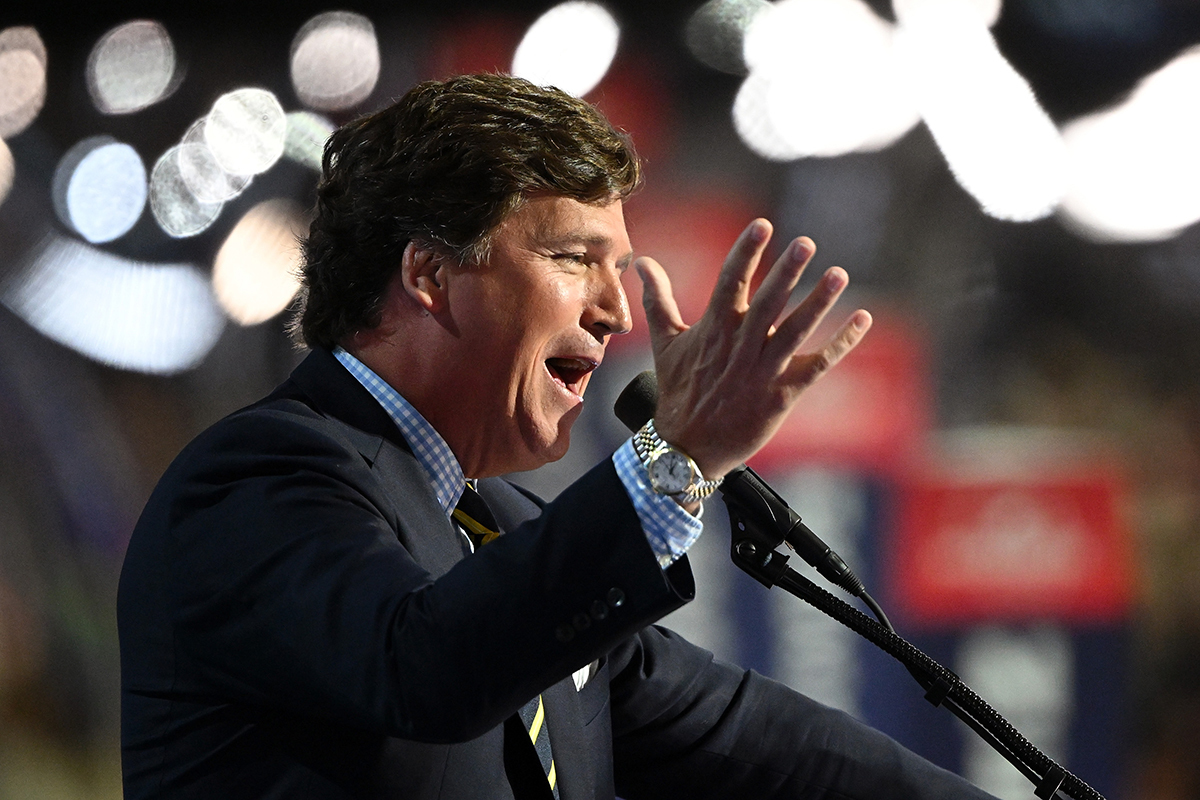The President, being not a Christian, didn't get the message.
Millions of Christians in churches around the world heard the same passage on Sunday from the Gospel of Luke. In it, Jesus declares his intentions “to proclaim good news to the poor,” as he speaks to people gathered in a synagogue in Nazareth.
At Episcopal Church of the Transfiguration in Dallas, the passage felt particularly appropriate this week, though it was chosen years ago as part of a three-year cycle of Bible readings.
“It’s Jesus 101,” said Michelle Williams, 55, a parishioner at the church.
It was the first Sunday since a fellow Episcopalian, Bishop Mariann E. Budde, delivered a sermon that many observers heard as an echo of passages like the one from Luke. Speaking at a prayer service at the National Cathedral in Washington the day after President Trump’s inauguration, she faced the president and made a direct plea: “Have mercy.”
After the service, Mr. Trump called Bishop Budde a “Radical Left hard line Trump hater” in a social media post. His foes immediately hailed her as an icon of the resistance. But for many progressive Christians and their leaders, the confrontation was more than a moment of political catharsis. It was about more than Mr. Trump. It was an eloquent expression of basic Christian theology, expressed in an extraordinarily public forum.
Sara Ivey, 71, another parishioner at Church of the Transfiguration, said the sermon reminded her of Psalm 103, which describes God as “merciful and gracious, slow to anger and abounding in steadfast love.” The sermon, which she watched live, made her “very proud to be an Episcopalian,” she said.
Bishop Budde’s sermon delivered a jolt of energy in many mainline Protestant churches, whose numbers and influence have declined steeply from a high point in the middle of the last century. Some mainline Christians have sensed an unsettling whiff of irrelevance that has accelerated in the Trump era, as Mr. Trump has elevated a stream of conservative, political Christianity whose leaders in some cases do not even consider Bishop Budde a fellow Christian.
So it was startling for many progressive Christians and their leaders to see Bishop Budde’s sermon overpower the prayers that were delivered at the inauguration by clergy members who are more sympathetic to Mr. Trump — and to see her rely primarily on theological principles themselves, rather than advocating specific policies.
“A plea for mercy, a recognition of the stranger in our midst, is core to the faith,” Presiding Bishop Sean Rowe, the Episcopal Church’s top clerical leader, said in an interview. “It is radical, given the order of the world around us — it is countercultural — but it’s not bound to political ideology.”

 www.nytimes.com
www.nytimes.com
Millions of Christians in churches around the world heard the same passage on Sunday from the Gospel of Luke. In it, Jesus declares his intentions “to proclaim good news to the poor,” as he speaks to people gathered in a synagogue in Nazareth.
At Episcopal Church of the Transfiguration in Dallas, the passage felt particularly appropriate this week, though it was chosen years ago as part of a three-year cycle of Bible readings.
“It’s Jesus 101,” said Michelle Williams, 55, a parishioner at the church.
It was the first Sunday since a fellow Episcopalian, Bishop Mariann E. Budde, delivered a sermon that many observers heard as an echo of passages like the one from Luke. Speaking at a prayer service at the National Cathedral in Washington the day after President Trump’s inauguration, she faced the president and made a direct plea: “Have mercy.”
After the service, Mr. Trump called Bishop Budde a “Radical Left hard line Trump hater” in a social media post. His foes immediately hailed her as an icon of the resistance. But for many progressive Christians and their leaders, the confrontation was more than a moment of political catharsis. It was about more than Mr. Trump. It was an eloquent expression of basic Christian theology, expressed in an extraordinarily public forum.
Sara Ivey, 71, another parishioner at Church of the Transfiguration, said the sermon reminded her of Psalm 103, which describes God as “merciful and gracious, slow to anger and abounding in steadfast love.” The sermon, which she watched live, made her “very proud to be an Episcopalian,” she said.
Bishop Budde’s sermon delivered a jolt of energy in many mainline Protestant churches, whose numbers and influence have declined steeply from a high point in the middle of the last century. Some mainline Christians have sensed an unsettling whiff of irrelevance that has accelerated in the Trump era, as Mr. Trump has elevated a stream of conservative, political Christianity whose leaders in some cases do not even consider Bishop Budde a fellow Christian.
So it was startling for many progressive Christians and their leaders to see Bishop Budde’s sermon overpower the prayers that were delivered at the inauguration by clergy members who are more sympathetic to Mr. Trump — and to see her rely primarily on theological principles themselves, rather than advocating specific policies.
“A plea for mercy, a recognition of the stranger in our midst, is core to the faith,” Presiding Bishop Sean Rowe, the Episcopal Church’s top clerical leader, said in an interview. “It is radical, given the order of the world around us — it is countercultural — but it’s not bound to political ideology.”

Some Protestants Felt Invisible. Then Came Bishop Budde.
The bishop asked President Trump publicly to “have mercy,” electrifying some liberal churchgoers in an era dominated by conservative versions of Christianity.



